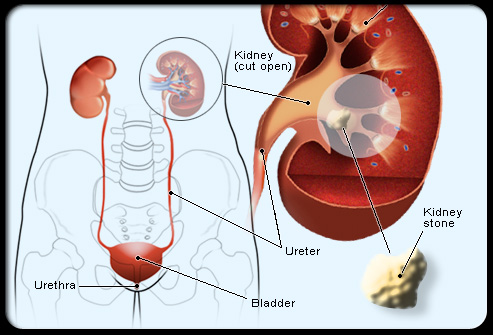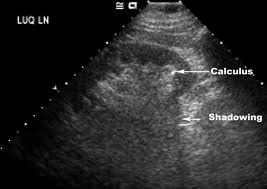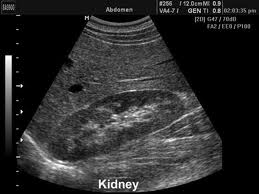Renal stones is Malaysia is indeed a very common disease. It is also unfortunately one of the main causes of renal failure. You must have heard of patients complaining renal stones pain are the worst pain they ever had and usually require very strong analgesia or painkillers like pethidine, which is super bad for you.
What causes renal stones?Anyone may develop a kidney stone, but people with certain diseases and conditions (see below) or those who are taking certain medications are more susceptible to their development.
Urinary tract stones are more common in men than in women.
A family history of kidney stones is also a risk factor for developing kidney stones. Kidney stones are more common in Asians and Caucasians.
Kidney stones form when there is a decrease in urine volume and/or an excess of stone-forming substances in the urine. The most common type of kidney stone contains calcium in combination with either oxalate or phosphate. About 75% of kidney stones are calcium stones.
A number of different medical conditions can lead to an increased risk for developing kidney stones:
- Gout results in chronically increased amount of uric acid in the blood and urine and can lead to the formation of uric acid stones.
- Hypercalciuria (high calcium in the urine), another inherited condition, causes stones in more than half of cases. In this condition, too much calcium is absorbed from food and excreted into the urine, where it may form calcium phosphate or calcium oxalate stones.
- Hyperparathyroidism, kidney diseases such as renal tubular acidosis, and other inherited metabolic conditions, including cystinuria and hyperoxaluria.
- Chronic diseases such as diabetes and high blood pressure (hypertension) are also associated with an increased risk of developing kidney stones.
- People with inflammatory bowel disease are also more likely to develop kidney stones.
- Those who have undergone intestinal bypass or ostomy surgery are also at increased risk for kidney stones.
- Some medications also raise the risk of kidney stones. These medications include some diuretics, calcium-containing antacids, and the protease inhibitor indinavir (Crixivan), a drug used to treat HIV infection.
- Dietary factors and practices may increase the risk of stone formation in susceptible individuals. In particular, inadequate fluid intake predisposes to dehydration, which is a major risk factor for stone formation. Other dietary practices that may increase an individual’s risk of forming kidney stones include a high intake of animal protein, a high-salt diet, excessive sugar consumption, excessive vitamin D supplementation, and possible excessive intake of oxalate-containing foods such as spinach. Interestingly, low levels of dietary calcium intake may alter the calcium-oxalate balance and result in the increased excretion of oxalate and a propensity to form oxalate stones.
A kidney stone may not cause symptoms until it moves around within your kidney or passes into your ureter — the tube connecting the kidney and bladder. At that point, these signs and symptoms may occur:
- Severe pain in the side and back, below the ribs
- Pain that spreads to the lower abdomen and groin
- Pain that comes in waves and fluctuates in intensity
- Pain on urination
- Pink, red or brown urine
- Cloudy or foul-smelling urine
- Nausea and vomiting
- Persistent urge to urinate
- Urinating more often than usual
- Fever and chills if an infection is present
Pain caused by a kidney stone may change — for instance, shifting to a different location or increasing in intensity — as the stone moves through your urinary tract.
While a CT is most commonly used to visualise and diagnose renal stone, an ultrasound may also be used to confirm this diagnosis.
If you have any of the above symptoms, do not waste time. These ultrasounds are painless, takes only half hour and a report of confirmed diagnosis will be made available on the same day. The cost is RM120. Call Zyla for appointment at 07-5544511.



